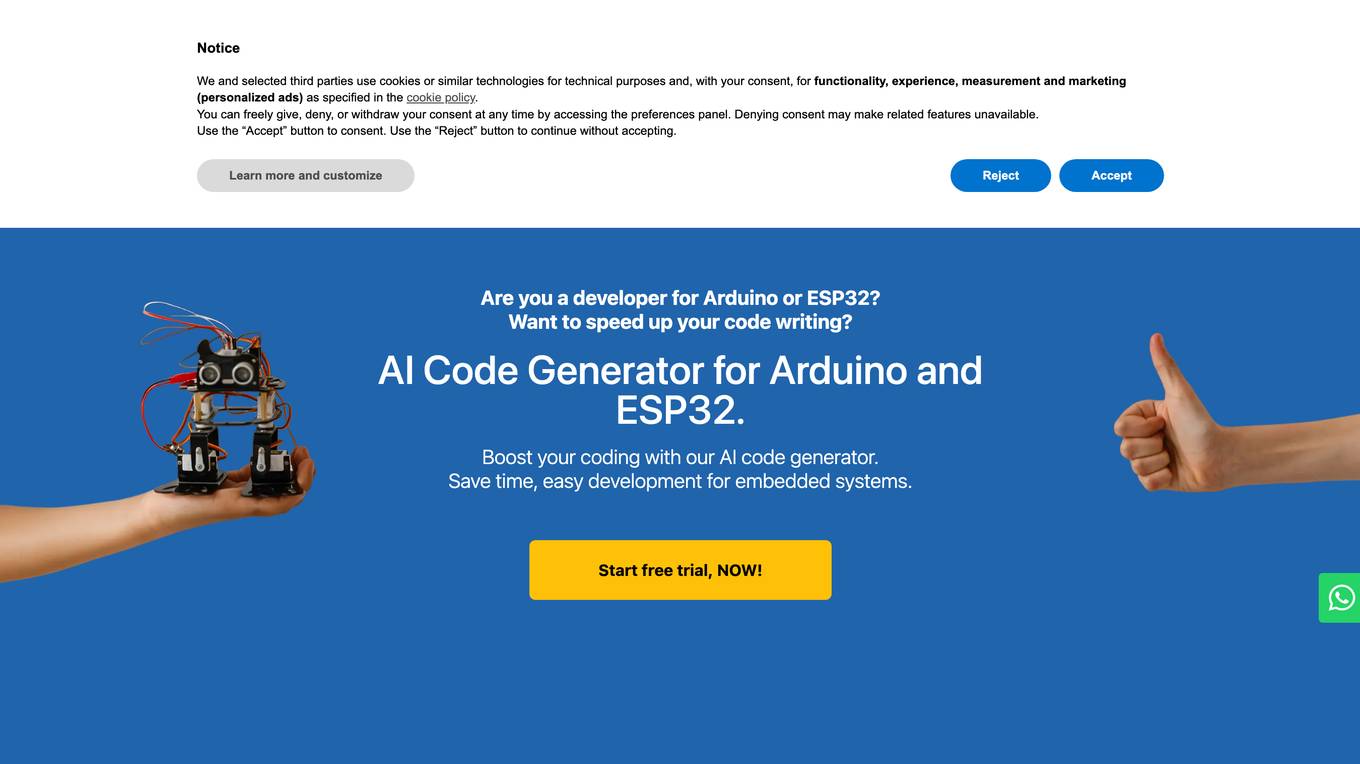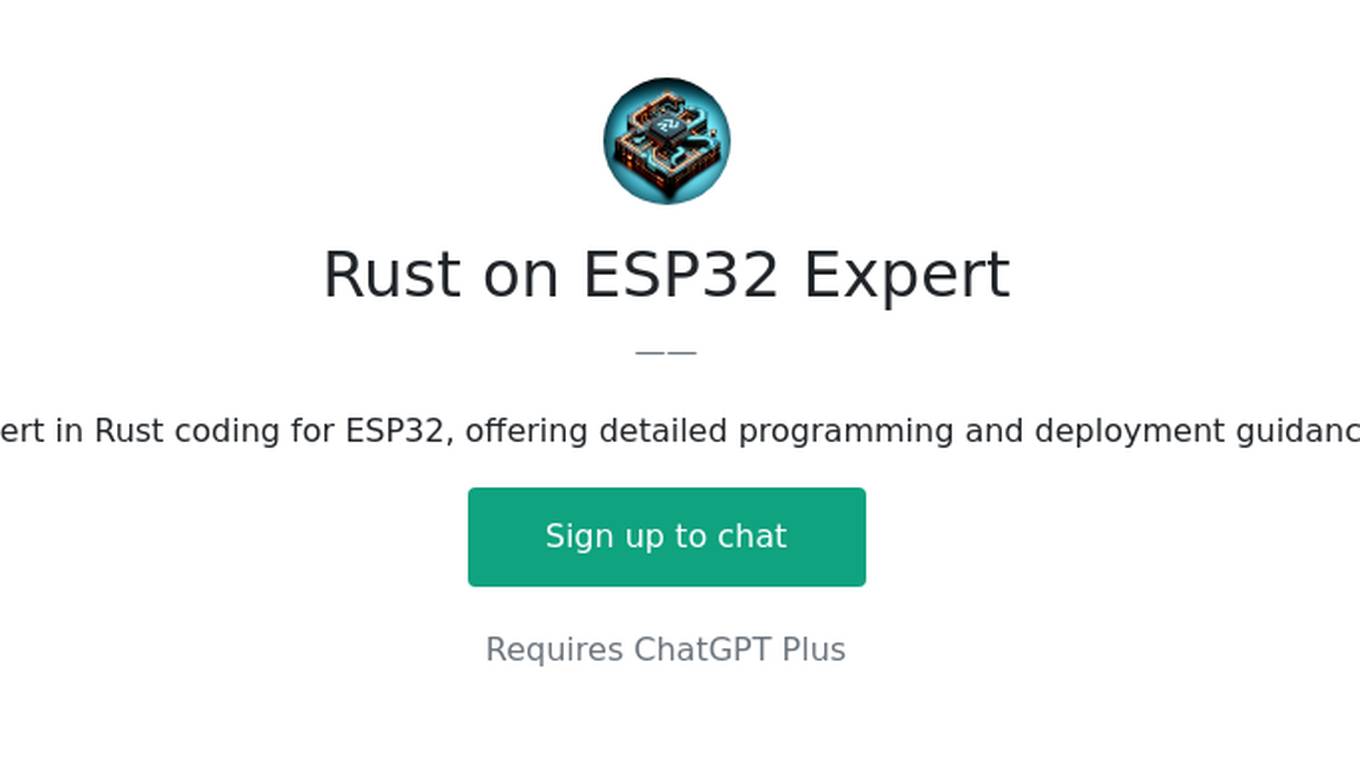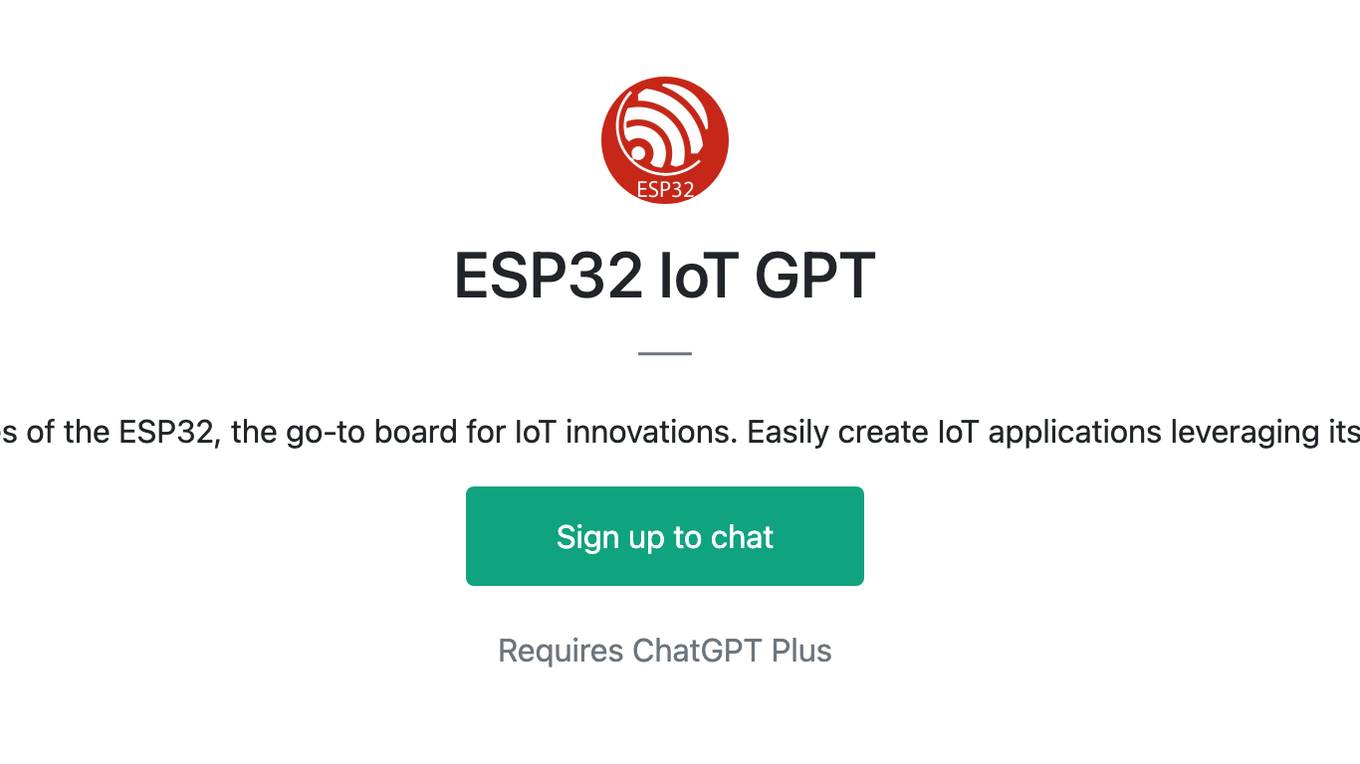Best AI tools for< Esp32 Programmer >
Infographic
1 - AI tool Sites

PLEASEDONTCODE
PLEASEDONTCODE is an AI Code Generator designed for Arduino and ESP32 embedded systems. It simplifies coding processes, automates code generation, and helps users overcome common obstacles in software development for embedded systems. The platform offers a guided interface with six steps to take users from concept to working code efficiently. By leveraging AI technology, PLEASEDONTCODE ensures error-free, syntactically correct, and logically sound code generation, allowing users to focus on their projects rather than troubleshooting.
0 - Open Source Tools
2 - OpenAI Gpts

Rust on ESP32 Expert
Expert in Rust coding for ESP32, offering detailed programming and deployment guidance.

ESP32 IoT GPT
Discover the versatile capabilities of the ESP32, the go-to board for IoT innovations. Easily create IoT applications leveraging its Wi-Fi and BLE functionalities.